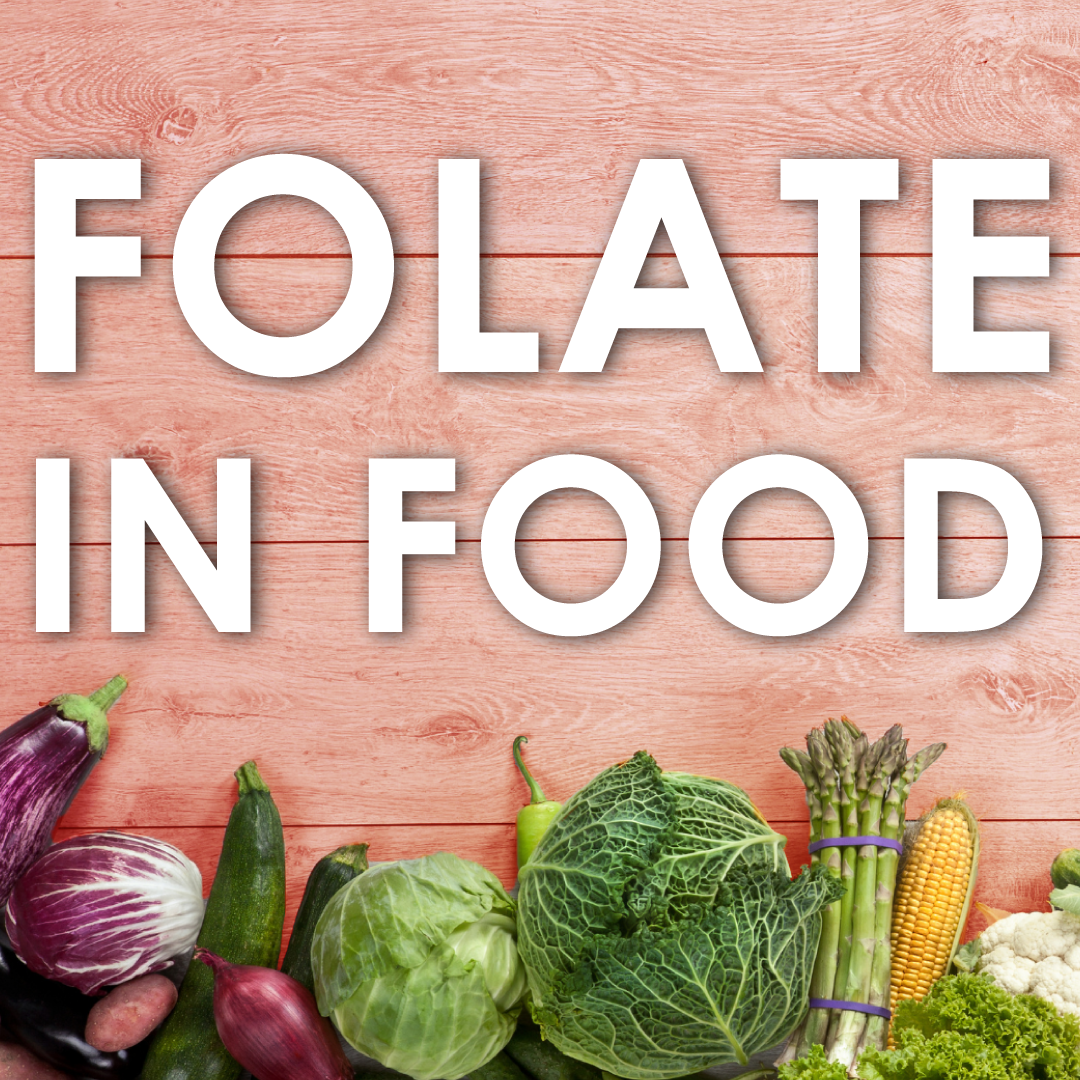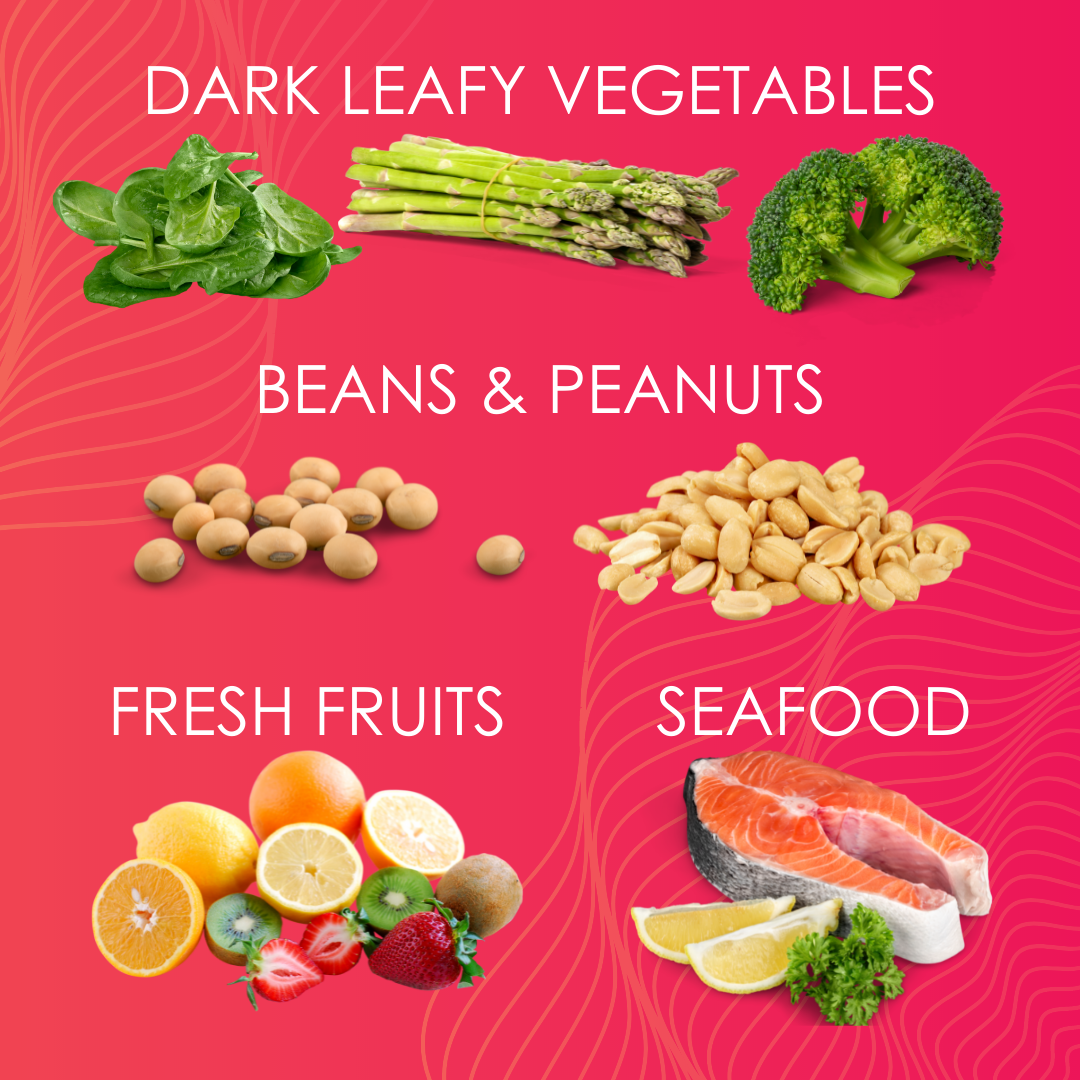Folic Acid VS Folate
folate
Are they the same or different?
The terms folic acid and folate are constantly used interchangeably in the world of nutrition. In actual fact, these two elements are different forms of the same vitamin, Vitamin B9. Folic acid is the synthetic form (non-active form) whilst, folate is the natural occurring form of vitamin B9.
Functions of Vitamin B9 :
- Aid in the growth of various tissues and cells in the body.
- Work synergistically with Vitamin B12 and Vitamin C to aid in the breakdown of protein and formation of new protein, making it readily available for use by the body.
- Reduce or prevent folate deficiency anemia
- Help produce DNA, the building block of the human body, which carries genetic information.
- Produce healthy red blood cells which are critical during periods of rapid growth, such as during pregnancy and fetal development.
- Prevent birth defects of the brain and spine known as neural tube defects (spina bifida)
- Aid in reducing the buildup of homocysteine in the body.
In recent years, homocysteine has caught the attention of many researchers, as high levels of this amino acid can wreak havoc in the human body. From increasing risk of osteoporosis to heart disease to dementia. High homocysteine levels usually indicate a deficiency in Vitamin B-12 or folate.
Foods rich in folate :
- Dark green leafy vegetables (turnip greens, spinach, romaine lettuce, asparagus, Brussels sprouts, broccoli)
- Beans
- Peanuts
- Sunflower seeds
- Fresh fruits, fruit juices
- Whole grains
- Liver
- Seafood
- Eggs
- Fortified food items. (eg: cereals, breads, rice, pasta, and other grain products).
Apart from getting folate from food sources, it is also available in the form of supplements. Most of the supplements in the market currently contain folic acid compared to active folate (in the form of 5-MTHF). One of the advantages of supplements that contain active folate is that it is biologically active, making it more easily absorbed and utilized by the body.
The best way to optimize folate intake is to consume a well-balanced diet with all major food groups; carbohydrate, proteins, fats, vegetables, fruits, etc. However, our hectic lifestyles makes it tough to implement this at every meal. Hence, it is encouraged to take a folic acid supplement daily, preferably one with active folate, to enhance folate stores in the body and reduce the risk of health complications.




